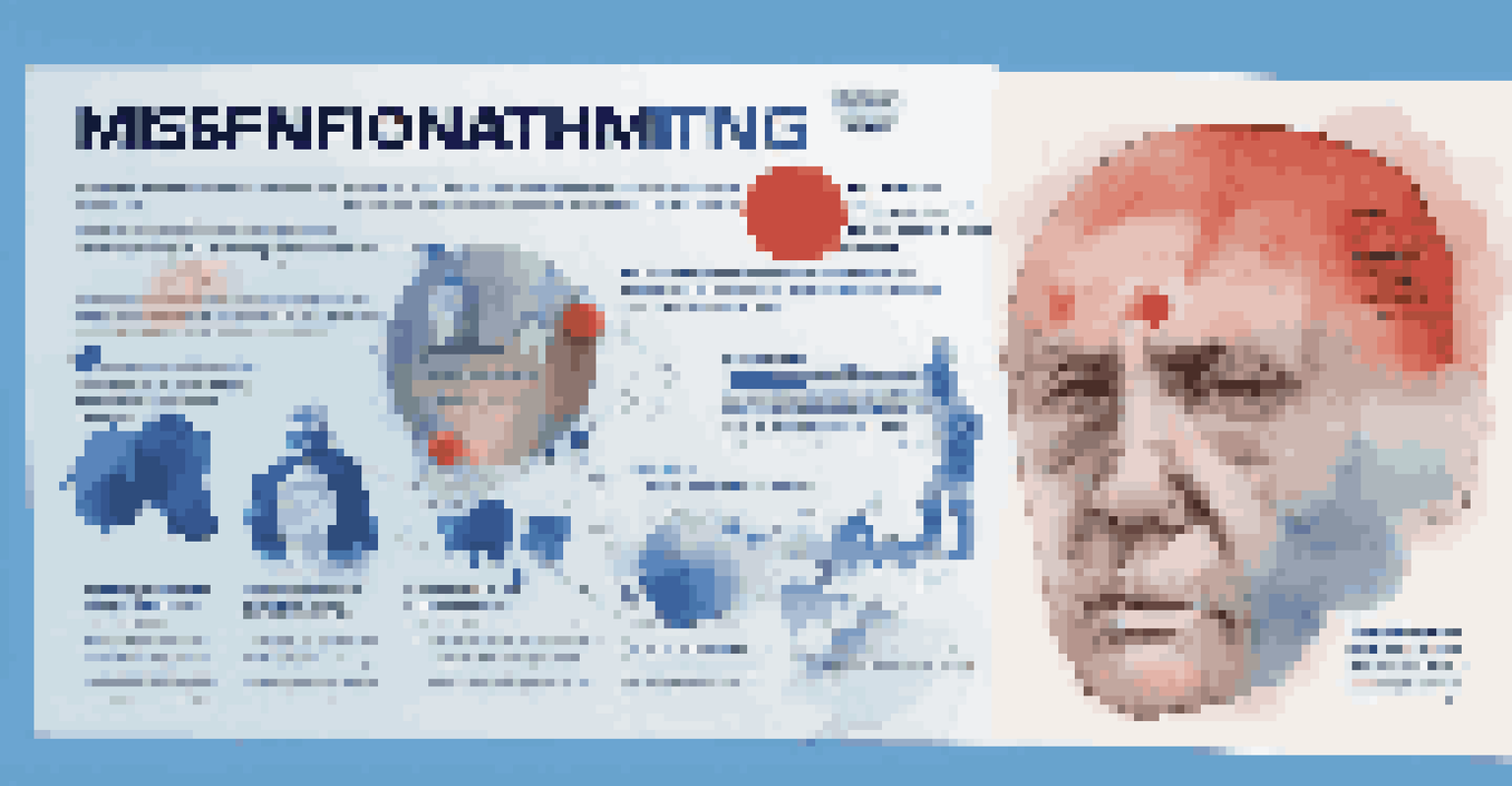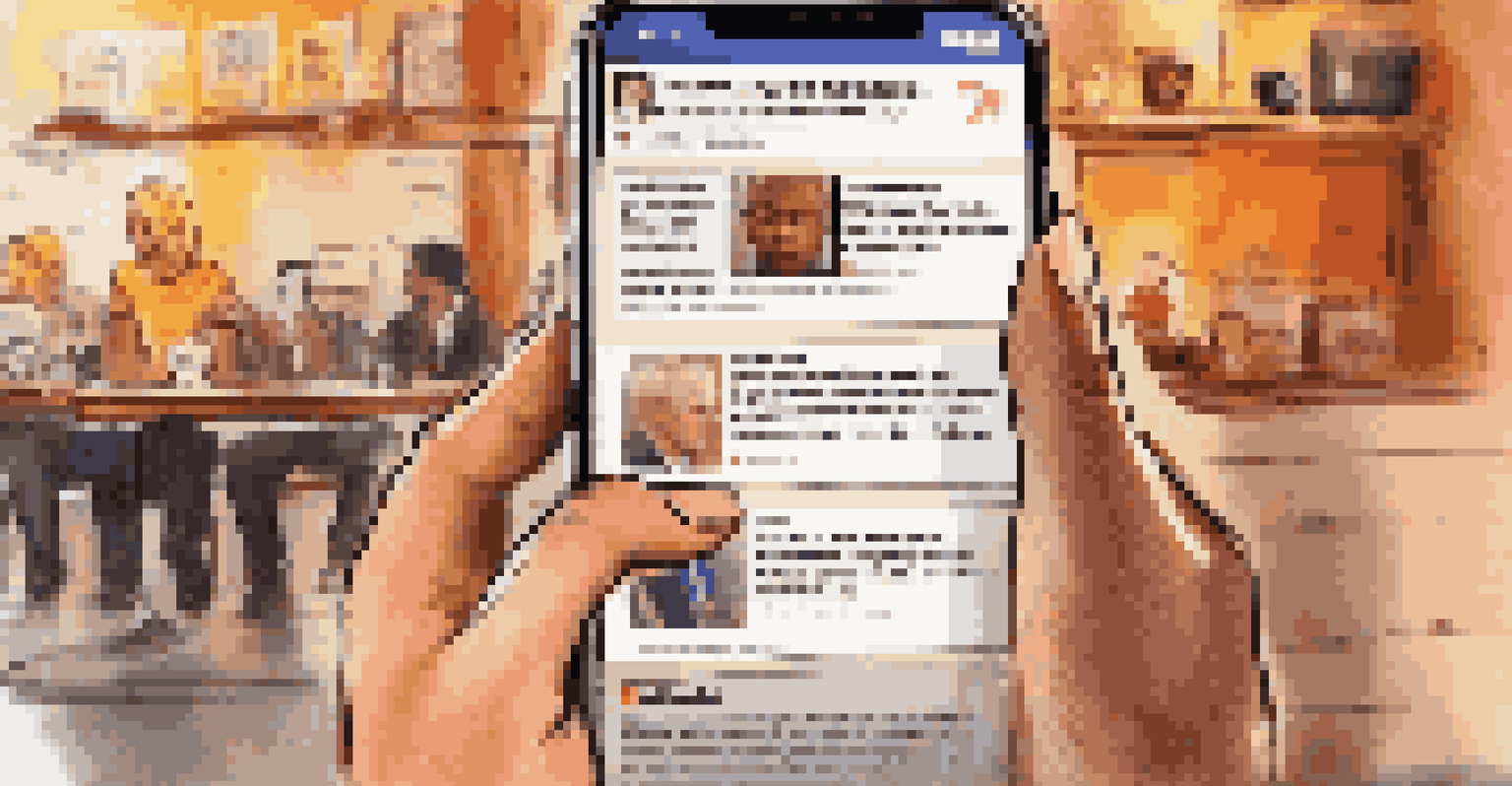Digital Literacy in Journalism: Verifying News Online

Understanding Digital Literacy in Journalism
Digital literacy is the ability to effectively find, evaluate, and communicate information using digital tools. In journalism, this skill set is crucial, especially as news sources proliferate online. Journalists must navigate through a sea of information, distinguishing credible reports from misinformation and fake news.
In the age of information, ignorance is a choice.
As technology evolves, so do the methods of communication and the platforms we use. Journalists today need more than just traditional reporting skills; they must be adept at using social media, blogs, and other digital platforms to disseminate news. This evolution underscores the importance of understanding not just how to report news, but how to verify it.
Digital literacy also encompasses the ability to critically assess the reliability of sources. A journalist must ask questions like: Who published the information? What are their motivations? By honing these skills, journalists can ensure they provide accurate and trustworthy news to their audience.
The Importance of Source Verification
Source verification is the cornerstone of responsible journalism. It involves checking the credibility of the information and the individuals or organizations providing it. In a world where anyone can publish content online, verifying sources is more important than ever to maintain journalistic integrity.

When a journalist receives a tip or an article, they must dig deeper. This means cross-referencing information with multiple reputable sources and seeking out original documents, if available. For example, if a news outlet reports a scientific breakthrough, a journalist should check the findings via the peer-reviewed journal where it was published.
Digital Literacy is Essential
Journalists must master digital literacy to effectively evaluate and communicate information in an era rife with misinformation.
Moreover, verifying sources can help journalists avoid the pitfalls of bias and misinformation. By ensuring that their information comes from a diverse range of credible sources, journalists can present a more balanced view of events and issues.
Tools for Verifying News Online
In the digital age, several tools can assist journalists in verifying news effectively. Fact-checking websites like Snopes and FactCheck.org are invaluable resources for quickly assessing claims. These platforms provide detailed analyses of popular rumors and misinformation, helping journalists confirm or debunk stories.
The best way to predict the future is to create it.
Additionally, social media platforms often have their own verification tools. For example, Twitter has a 'verified' badge for accounts that meet specific criteria, indicating authenticity. Journalists can use these features to assess the reliability of sources and their information before publishing.
Using search engines effectively also plays a significant role in verification. Journalists can conduct reverse image searches to verify the authenticity of photos or track down the original source of a quote or video. These strategies not only enhance accuracy but also build trust with the audience.
Recognizing Misinformation and Disinformation
Misinformation refers to false or misleading information spread without malicious intent, while disinformation is deliberately false information intended to deceive. Understanding these distinctions is critical for journalists today. For instance, a viral meme might contain misinformation, while a fabricated news article could be an example of disinformation.
Recognizing the signs of misinformation and disinformation often comes down to critical thinking. Journalists should ask themselves questions about the content they encounter: Is the source credible? Are there factual inconsistencies? By maintaining a skeptical mindset, journalists can better protect their audiences from harmful falsehoods.
Source Verification is Crucial
Verifying sources is fundamental to maintaining journalistic integrity and ensuring accurate reporting in today's information landscape.
Moreover, journalists should educate their audiences about these concepts. By explaining the differences between misinformation and disinformation, they can empower readers to be more discerning consumers of news, fostering a more informed society.
The Role of Social Media in News Verification
Social media platforms have revolutionized how news is shared and consumed, but they also pose challenges for verification. With the rapid spread of information, it’s essential for journalists to navigate these platforms judiciously. They must be vigilant about the content they encounter, ensuring that they verify stories before reporting them.
Furthermore, social media can amplify false information, making it appear more credible due to sheer volume. This phenomenon often leads to the virality of misleading headlines and articles. Journalists must critically evaluate trending topics and claims circulating on these platforms to separate fact from fiction.
However, social media can also serve as a valuable tool in news verification. Journalists can use these platforms to gather insights, engage with communities, and even trace the origins of a story. By leveraging social media responsibly, they can enhance their reporting and provide a more comprehensive view of the news.
Building a Culture of Digital Literacy
Fostering a culture of digital literacy within journalism organizations is vital for combating misinformation. This involves providing ongoing training and resources to help journalists stay updated on the latest tools and verification techniques. By prioritizing digital literacy, newsrooms can cultivate a workforce that is adept at navigating the complexities of the digital landscape.
Moreover, collaboration among journalists can enhance digital literacy. Sharing tips, tools, and experiences can lead to a more informed and skilled team. For instance, hosting workshops or discussion groups can create an environment where journalists learn from one another and refine their verification practices.
Social Media's Dual Role
While social media can spread misinformation rapidly, it also serves as a valuable tool for journalists to verify and share news.
Ultimately, a culture of digital literacy not only benefits journalists but also enhances public trust in the media. When audiences see that journalists are committed to accuracy and transparency, they're more likely to engage with and rely on their reporting.
The Future of Digital Literacy in Journalism
As technology continues to evolve, so too will the challenges and opportunities for digital literacy in journalism. Emerging technologies such as artificial intelligence and machine learning can assist journalists with verification tasks, making the process more efficient. However, these technologies also require journalists to adapt and learn new skills.
Furthermore, the rise of new media formats, like podcasts and video journalism, emphasizes the need for versatile digital literacy. Journalists must be prepared to verify information across various platforms and formats, ensuring that accuracy remains a priority, regardless of the medium.

Looking ahead, equipping journalists with strong digital literacy skills will be essential for preserving the integrity of the profession. By embracing education, collaboration, and technology, journalists can navigate the complexities of the digital age and continue to serve their audiences effectively.